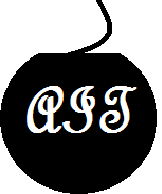Plain Carbon Steel
Plain Carbon Steel
- Lowest cost
- Should be considered first in most application
- 3 Classifications
- Low Carbon (less than 0.3% carbon)
- Med Carbon (0.3% to 0.6%)
- High Carbon (0.6% to 0.95%)
1.) Low Carbon (less than 0.3% carbon)
- Low strength, good formability
- If wear is a potential problem, can be carburized (diffusion hardening)
- Most stampings made from these steels
- AISI 1008, 1010, 1015, 1018, 1020, 1022, 1025
2.) Med Carbon (0.3% to 0.6%)
- Have moderate to high strength with fairly good ductility
- Can be used in most machine elements
- AISI 1030, 1040, 1050, 1060*
3.) High Carbon (0.6% to 0.95%)
- Have high strength, lower elongation
- Can be quench hardened
- Used in applications where surface subject to abrasion – tools, knives, chisels, ag implements.
- AISI 1080, 1095
- 1018 –Low carbon Yield strength 55ksi
- 1045 –Medium carbon Yield strength 70ksi
- A36 –Low carbon Yield strength 36ksi
- 12L14 –Low carbon Yield strength 70ksi
- 1144 –Medium carbon Yield strength 95ksi
- Again, alloy of iron and carbon with carbon the major strengthening element via solid solution strengthening.
- If carbon level high enough (greater than 0.6%) can be quench hardened (aka: dispersion hardening, through hardened, heat treated, austenite and quenched, etc..).
- Can come in HRS and CRS options
- The most common CRS are 1006 through 1050 and 1112, 1117 and other free machining steels







